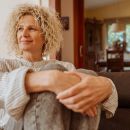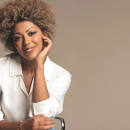Dr Hazel Wallace: ‘If men had periods, it would be a very different world’
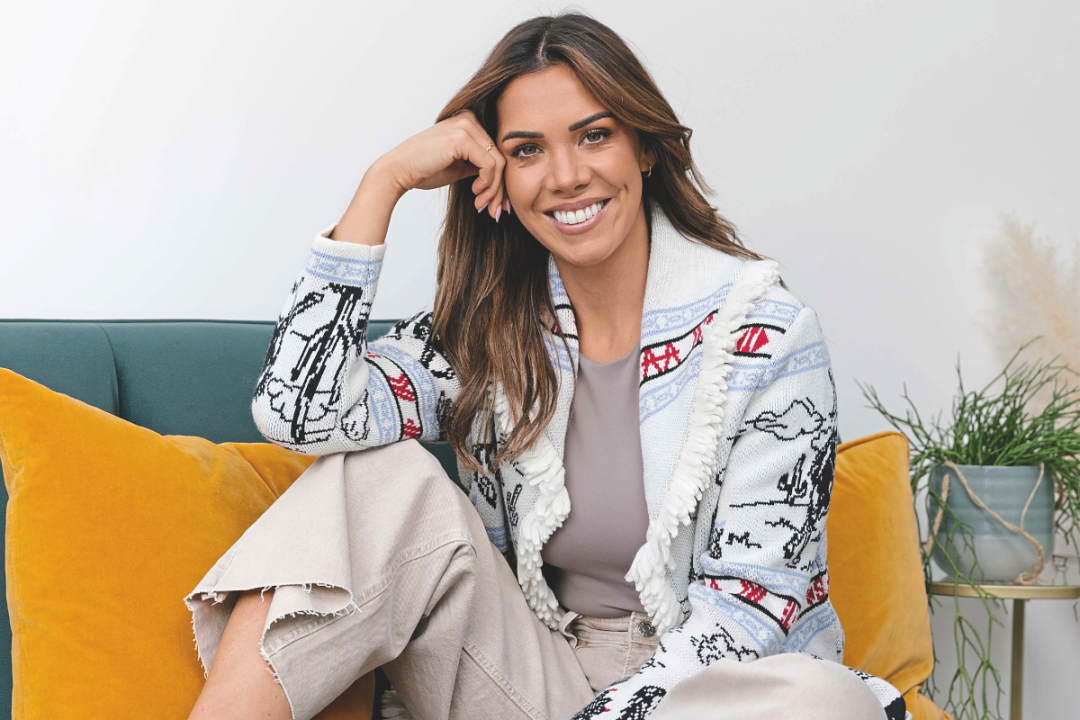
Medical doctor and hormonal health expert Dr Hazel Wallace tells Sally Saunders why women’s health is a feminist issue and we all need to get comfortable talking about it.
Words: Sally Saunders. Images: Rebecca Hope
We’ve all been there: sitting in the doctor’s surgery, patiently explaining your symptoms, explaining the impact whatever it is has had on you, explaining why this matters. And then being brushed off, with a quick prescription if you’re lucky, but most likely told, in one way or another, to get on with it.
That is, we’ve all been there, assuming you’re one of the 97% of readers of this magazine who are female.
But call me crazy, I hadn’t expected that to be the case for an actual medical doctor.
Well, it seems it doesn’t matter what your job is, how many years you spent studying, how knowledgeable you are: if you’re female, and suffering from anything that could even loosely be termed ‘women’s problems’, then you’re probably going to get fobbed off.
That’s what happened to author and former NHS medic, Dr Hazel Wallace. ‘I had my suspicions that I had Polycystic ovary syndrome (PCOS),’ she explains, when talking about the motivation behind her new book, Not Just a Period (Bluebird, £18.99).
‘Irregular cycles are the main symptom which I was experiencing, excess hair growth is another one, and acne, and it was actually a dermatologist who said to me, “I really think you should go get some bloods done, I think you might have PCOS.” But when I went to see my GP, he told me, “You don’t fit the PCOS picture.”
‘Now, in medical school, we learned that in PCOS usually the women are hairy and very overweight, and that was the picture that they sold us for PCOS. But there’s so many different ways a woman can present with PCOS.
‘And I had to really fight for blood tests and fight for an ultrasound. From the onset of symptoms to getting the diagnosis it took two full years.
‘And even when I got the diagnosis, because I wasn’t ready to get pregnant at that point, he just said, “Well, you’re not overweight, so just cut the carbs and come back when you want to get pregnant,” which was pretty useless advice.
‘And the more women I speak to, it seems like the medical profession just keep telling women either go on the pill or just come back when you want to get pregnant.’
It illuminated the inequalities in the medical system in a very dramatic way — an area Wallace was already interested in. ‘My last book was called The Female Factor, and that was my first step into the women’s health space,’ she says. ‘That came about because I was working in the NHS at the time, and there was a lot of research coming out about how women have been underserved and neglected in health care.
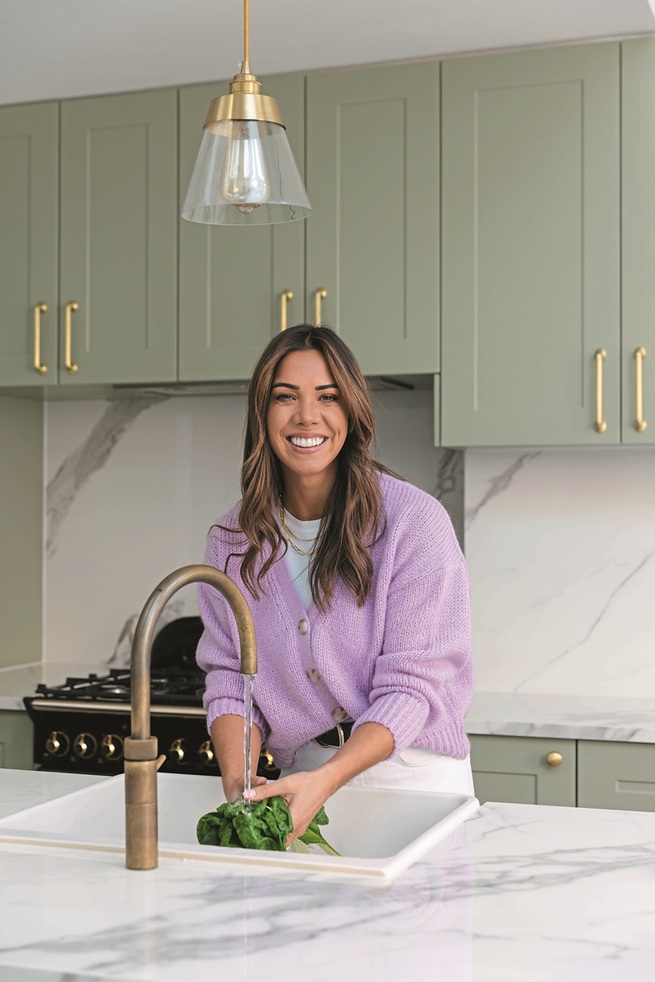
‘What we were starting to hear is that even when it comes to things like heart attacks, women were dying needlessly, and most of this is because the research that we have is based on a male body, and we’re just assuming that women are smaller men, which we are not.
‘So I wrote The Female Factor, and off the back of that, I had loads of women messaging me about menstrual cycle issues. They were waiting years to get an endometriosis diagnosis, or like me had to wait ages for a PCOS diagnosis. And that really shone a light on the menstrual cycle.
‘When women turn up to the doctor’s office it’s often treated like it’s just part and parcel of being a woman. Everyone has a period. It’s meant to be painful, it’s meant to be a bad experience, that’s often the assumption. But I really don’t believe that’s true. So I wrote this book as a way to give women the advice that we aren’t usually given.’
She’s a firm advocate of not just supporting women to tackle problems with this aspect of their health, but also to take control of it in order to live better.
‘Often we don’t really think about our cycle unless something’s gone wrong,’ she says. ‘But I want this book to help people think about their cycle as a way to really optimise their health, harness their productivity, and just really better understand their bodies.’
In a way, Wallace’s own negative experiences may well benefit the rest of us. As a result of her challenges she studied a master’s in nutrition, and now works as a nutritionist, personal trainer, and author, focused on helping women with their hormonal health. ‘I would say 90% of my clinic clients are women with PCOS,’ she explains.
‘I found there is so much we can do beyond just putting people on the pill: nutrition and lifestyle management and supplementation can be hugely beneficial.
‘I’m not anti medicine: medical treatment can be involved, but it doesn’t work for everyone, like me. Now I’m at a point where my cycles are regular and I can live quite symptom free, which is a really fantastic thing, but the fact I had to go around the houses and figure it out for myself, and that information isn’t available for women when they’re living with these really debilitating symptoms, is just not really okay.’
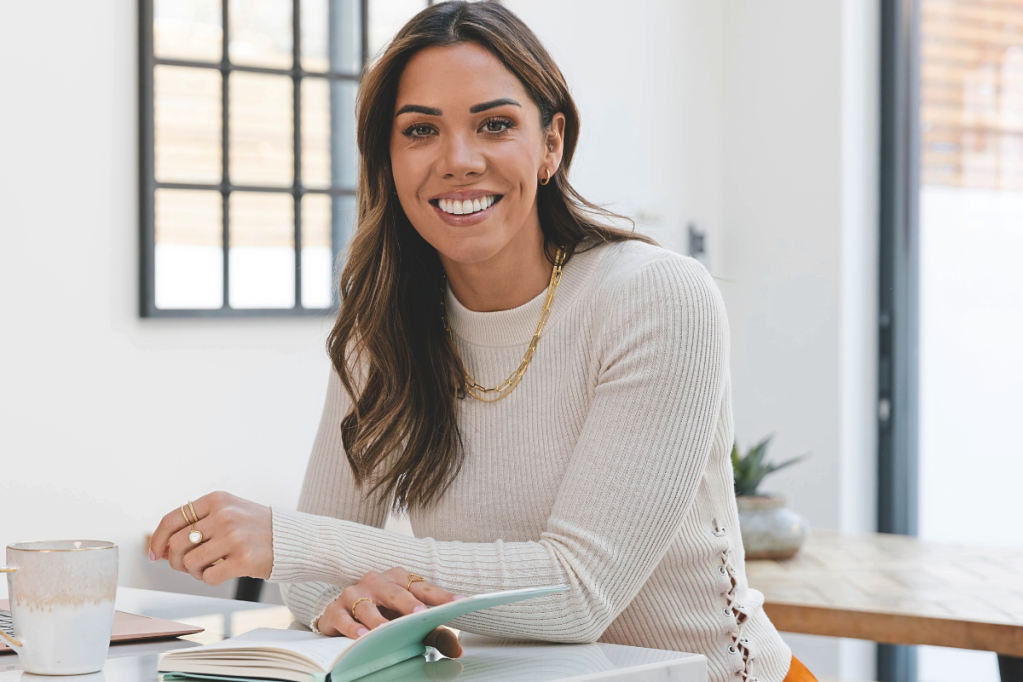
Wallace, now 34, was motivated to go into medicine following the tragic death of her father to a stroke when she was just 14.
‘That really that first of all, made me want to be a doctor, but it also reinforced to me how our lifestyle, like nutrition, diet and movement and stress can play a role in our kind of risk of health and disease.’
It’s another reason she wants to help us tackle our hormonal issues: the stress and mental health impact they can have. ‘If you’re experiencing physical health symptoms, for example, painful or heavy periods, that has a knock on effect with your mental health. You’re going to experience anxiety around it, you might experience low mood.
‘You may not want to socialise because you’re experiencing those symptoms, and then that will indirectly impact your mental health. We also know that stress can impact our hormones and our menstrual cycles.
‘And if you’re experiencing debilitating symptoms, and when you go to your doctor they’re telling you it’s all in your head, you’re going to start second guessing whether you’re actually really experiencing those symptoms. So I think there’s a lot we can’t quantify in terms of the impact of dismissing women or turning them away.’
Another aspect of this difficulty lies in the ‘gender pain gap’, she says: a lot of research shows that when women report pain, they’re more likely to have it dismissed, and in hospital settings, when they ask for medication, women have to wait longer for painkillers than men do.
‘When it comes to period pain or period symptoms, or menstrual symptoms, we almost act as if they are less painful or less troublesome than other symptoms,’ she says.‘So if you came with a chest pain, for example, we would take that very seriously.
‘And I’m not saying that painful periods are going to cause sudden death like a heart attack would, but some women live with painful periods for years and years, to the point where they end up having their womb removed because it’s that distressing, and that should cause people to sit up and take them seriously.
‘So I think what I would love to see is the recognition that any menstrual cycle symptoms are distressing and can cause a lot of harm and reduce quality of life for women, and for doctors to not turn women away when they come up talking about their women’s health problems.’
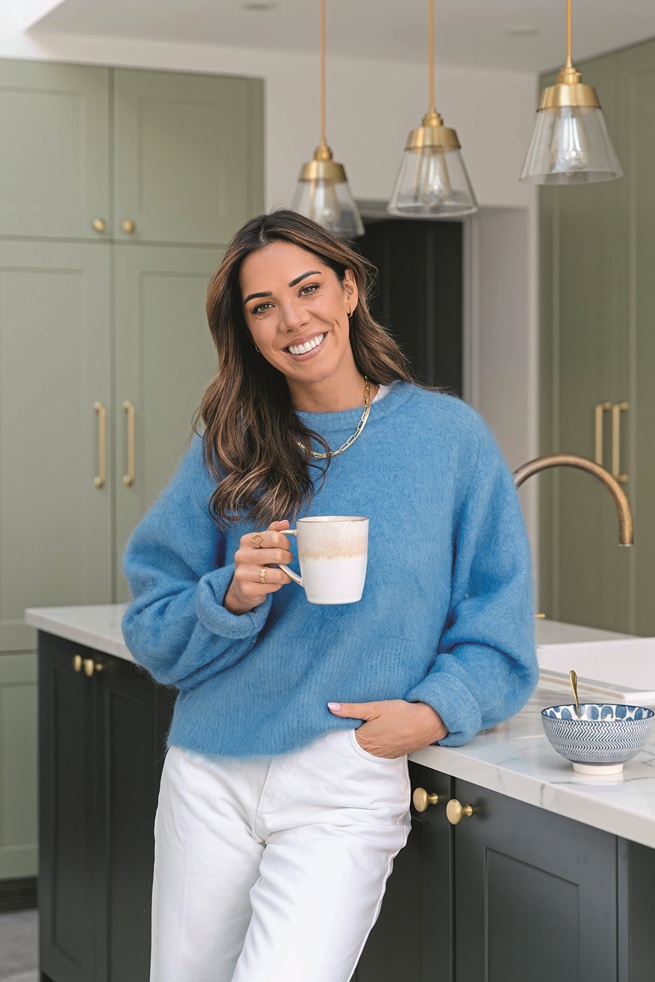
It sounds like she spends her time locked in difficult conversations, but Wallace explains it’s quite the opposite. ‘I love my work, I can’t tell you how rewarding it is,’ she beams. ‘I think it’s because women are really underserved and neglected part of our community, and when they do get the chance to get support, they’re just super grateful.
‘And also, I’ve seen firsthand that how the right support can really transform their quality of life.
‘So I just think we’re really not doing very much. I’m only one person. What if a lot more of the health community were viewing menstrual cycles in this way and were viewing women’s health in this way? I think there’s just so much more that could be done.’
While voices are appearing on social media to help women tackle these issues there are few that come with a background like hers. So what’s causing her to speak out like this?
‘I don’t think there’s anything radical about talking about periods, but what I found really interesting was, even with the publication of this book, that not everyone’s comfortable talking about it. Too often it’s dismissed as just a women’s issue, but I think this if we’re looking at productivity and days lost to menstrual health issues and the menopause, and how much women’s careers are impacted by their cycles, or perimenopause, it affects all people.
‘We put so much research into things that affect just men, like for example erectile dysfunction has five times more research than premenstrual symptoms, which impacts 90% of women.
‘So I think if men had periods, it would be a very different world.
‘It is a feminist issue, but I think it’s not radical, and it shouldn’t be taboo, and everyone should care about it, because it impacts everyone.’

How to talk to your doctor
1. Keep track
If you are suffering from issues that are related to your menstrual cycle, Wallace says the first step is to track your health. ‘You need two to three cycles worth of evidence that you’re having these symptoms,’ she says.
‘It doesn’t have to be a tracking app, you could just track it with pen and paper, in your phone, in your calendar, whatever, but you need to map when you’re having these symptoms before you go to your doctor, even if you’re on contraception.
Whether it’s PCOS, endometriosis, Premenstrual stress or premenstrual dysmorphic disorder, it’s really important you track so we can see that cyclical variation.’
2. Choose wisely:
‘Make an appointment with a GP that you’ve been to before and you’re comfortable with,’ she says. ‘If you’re not comfortable with your GP, you are within your rights to ask to see another GP. And if you feel like they’re not taking you seriously or you’re being dismissed, you can ask for a second opinion.’
3. Take a friend
‘If you can, bring someone with you, and that can just give us a bit more confidence to advocate for ourselves,’ she says.
Also sometimes, if we’re thinking about what the doctor is saying, we’re not really taking it all in, and your friend can take notes for you, or ask questions that you suggested.’
4. Be prepared
‘If you’re feeling like you’re not getting anywhere, you can print off the official NICE guidance,’ says Wallace. ‘You could go in there and say “I think I’ve got these symptoms, and I read this on the NHS website, which suggests this,”’ she says. ‘That’s really helpful if you’re nervous and feel like you need something a bit more legitimate to back you up.’
5. Be honest

Her final point? Don’t minimise your pain. ‘In all the years that I’ve worked in the NHS, I would say that women typically downplay symptoms, and they try not to be a nuisance,’ she says. ‘Don’t feel like you need to downplay things, or worry you’re being a nuisance.
‘Talk about how it’s really impacting your quality of life, because everyone experiences these symptoms differently. ‘And it’s okay if you get emotional, it can be really emotional when you finally get someone to listen to you.’
Not Just a Period by Dr Hazel Wallace (Bluebird, £18.99) is out now







